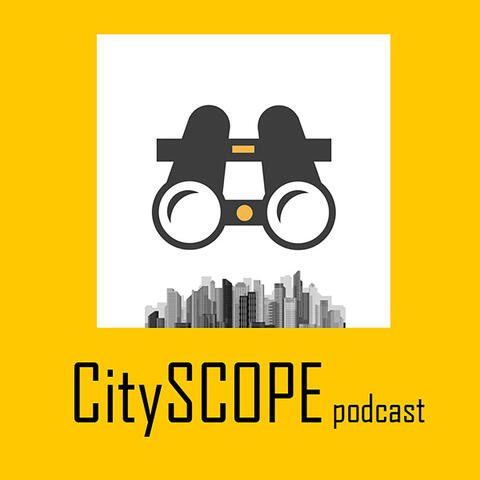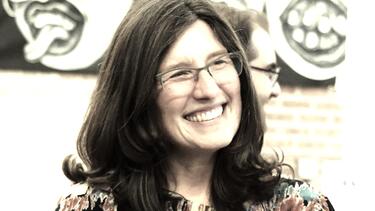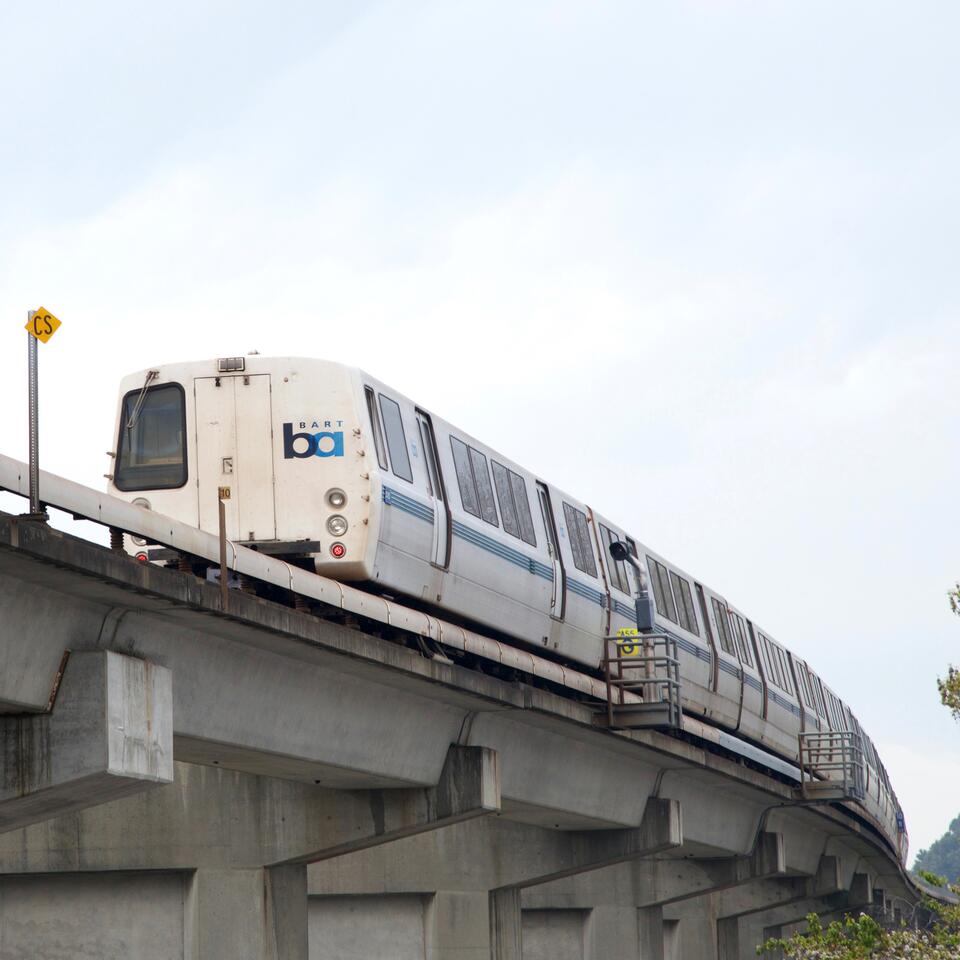CitySCOPE Podcast
Welcome to CitySCOPE, a podcast about cities and inclusive economic development from Kate Cooney and her students at the Inclusive Economic Development Lab at the Yale School of Management.

Subscribe to CitySCOPE Podcast in Apple Podcasts, Spotify, Google Podcasts, or your favorite podcast player.
Episodes
- Podcast
Childcare as Infrastructure
Childcare is essential to the productivity of the economy locally and nationally. Often overlooked in conversations about infrastructure, in episode 10, we explore the idea of childcare as essential infrastructure. With Jessica Sager, Co-Founder and CEO of All Our Kin, we discuss childcare systems - or really non-systems and how recent legislation has sought to develop a functioning system, but how there is still work to be done. Matthew Archuleta and Payal Saini co-host.
![Childcare as Infrastructure]()
- Podcast
Critical Examination of the Built Environment
In episode 9, we feature a wide ranging conversation with Elihu Rubin, Associate Professor at the Yale School of Architecture. We discuss both the market and power dynamics at play in decisions for remaking the city over time. With Faye Phillips as host, topics include: the crisis of the post-industrial city, the Prudential Center in Boston as both architectural form and symbol, the Goffe Street Armory in New Haven and it’s potential as public infrastructure, and the role of historic heritage in everything from adaptive reuse to ghost towns.
![Critical Examination of the Built Environment]()
- Podcast
Neighborhood Trusts
In episode 8, we learn about a new economic development tool called a neighborhood trust. Joined by Adriana Abizadeh, Executive Director of the Kensington Corridor Trust in Philadelphia, and Joe Margulies, Professor of Law and Government at Cornell University, we will explore the theory behind neighborhood trusts and the work underway in Philadelphia to set up one of the country’s first community-controlled neighborhood trusts. With co-hosts Brandon Jones and Christina Bovey.
Tune in!
Photo credit: Luis Acosta Studio © 2020![Neighborhood Trusts]()
- Podcast
Constructing Community
In episode 7, we discuss the role that community development corporations (CDCs) play in constructing communities with Jeremy Levine, Associate Professor of Organizational Studies and Sociology (by courtesy) at the University of Michigan and author of Constructing Community: Urban Governance, Development, and Inequality in Boston. Topics include: the role that CDCs have in local development projects and neighborhood representation, earlier more top-down approaches of urban renewal in contrast with today’s more bottom-up community development approaches, and the complexities of both mechanisms.
![Constructing Community]()
- Podcast
Zoning Atlas with Sara Bronin
In episode 6, we explore zoning policy with Sara Bronin, Professor of the Cornell College of Architecture, Art, and Planning, and Associated Faculty Member of the Cornell Law School (on public service leave). Sara Bronin is a Mexican-American architect and attorney whose interdisciplinary research focuses on how law and policy can foster more equitable, sustainable, well-designed, and connected places. Through the Legal Constructs Lab, Sara created the National Zoning Atlas to translate and standardize tens of thousands of zoning codes across the country. She has advised the National Trust for Historic Preservation and Sustainable Development Code, has served on the board of Latinos in Heritage Conservation, and founded Desegregate Connecticut. Previously, she led the award-winning, unanimously-adopted overhaul of the zoning code and city plan of Hartford, Connecticut. This audio was created in spring 2022, before Sara Bronin was nominated to lead a federal agency in Washington DC. The conversation sheds light on work underway before she left CT for D.C. In her current role, she is no longer affiliated with DesegregateCT.
![Zoning Atlas with Sara Bronin]()
- Podcast
TOD, part 2-Displacement or Community Dividend?
Co-hosts Joanne Jan and Sherry Li are back with our guests Karen Chapple of the School of Cities at the University of Toronto and Anastasia Loukaitou-Sideris, Distinguished Professor of Urban Planning & Interim Dean of the UCLA Luskin School of Public Affairs to continue our discussion on transit-oriented development (TOD). In episode 5, we dive into one of the hypothesized unintended consequences of TOD - gentrification and displacement. We learn some examples of TOD from outside the US and then Anastasia and Karen share the findings from their research on both residential and commercial gentrification. The episode ends with discussion on warning signs of gentrification and displacement along with strategies to employ once the process has already started in order to preserve affordability.
![TOD, part 2-Displacement or Community Dividend?]()
- Podcast
Transit Oriented Development, part 1
The next two episodes feature conversations with Anastasia Loukaitou-Sideris, Distinguished Professor of Urban Planning & Interim Dean of the UCLA Luskin School of Public Affairs, and Karen Chapple of the School of Cities at the University of Toronto. These are two giants in the field of urban planning and innovative scholars in their approach to the study of cities. We will be exploring the pros and cons of transit-oriented development (TOD) as examined in their co-authored book Transit Oriented Displacement or Community Dividends? Understanding the Effects of Smarter Growth on Communities. In episode 4, we learn about the benefits of TOD along with some of the reasons to be cautious about this approach. Our guests share the creative research approaches they developed to study neighborhood change and to engage with communities as part of the research process. Co-hosted by Sherry Li and Joanne Jan, Yale SOM MBAs.
![Transit Oriented Development, part 1]()
- Podcast
The Move to a CBA Ordinance-Case of Detroit
In episode 3, we speak with Lisa Berglund, Professor of Urban Planning at Dalhousie University to continue our exploration of community benefit agreements. This time, we take a closer look at CBAs in a specific context - Detroit. Detroit was the first U.S. city to have a CBA ordinance requiring CBAs for all development over a certain size. We learn how Detroit utilizes community benefit agreements along with other policies to support accountable economic growth and development. Professor Berglund shares insight from her close study of the case of Detroit and the urban governance design and processes undergirding this inaugural effort to mandate CBAs. Laura Brennan, MBA and Kate Cooney co-host.
Tune in!
Photo Credit: Photo 184268858 | Joe Louis Fist © Wirestock | Dreamstime.com![The Move to a CBA Ordinance-Case of Detroit]()
- Podcast
Community Benefit Agreements
In episode 2 of Season 4, we are joined by Virginia Parks, Professor at University of California Irvine, and Roxana Tynan, Executive Director of the Los Angeles Alliance for New Economy (LAANE) for a conversation about community benefit agreements. Steven Waller and Alice Yuan co-host. The episode describes the history and mechanics of CBAs, tracing their roots in early 2000s Los Angeles and how they have evolved over time to be a tool leveraged by city actors to promote equity and opportunity. We learn how the organizing work undergirding CBA activity in the early 2000s in Los Angeles showcased both the possibilities and shortcomings of CBAs and where the work has expanded in the decades since the modern CBA movement was born.
Join us for a great conversation!![Community Benefit Agreements]()
- Podcast
Infrastructure and Equity
Season 4 of the CitySCOPE podcast features conversations with academics, urban planners, developers and community leaders weighing in on different mechanisms to drive more equitable development through infrastructure development. The season is organized around questions such as: How have communities organized to ensure that the community benefits from new development, who speaks for the community in urban governance networks, how can neighborhoods be revitalized without inducing the harms of gentrification and how does childcare fit into the infrastructure conversation? Topics include: community benefits agreements, transportation-oriented development, neighborhood trusts, urban governance networks, developer-led community benefits, and the role of childcare in our national infrastructure.
Episode 1 provides a sneak peek at the voices you’ll hear over the season.
Take a listen!![Infrastructure and Equity]()










